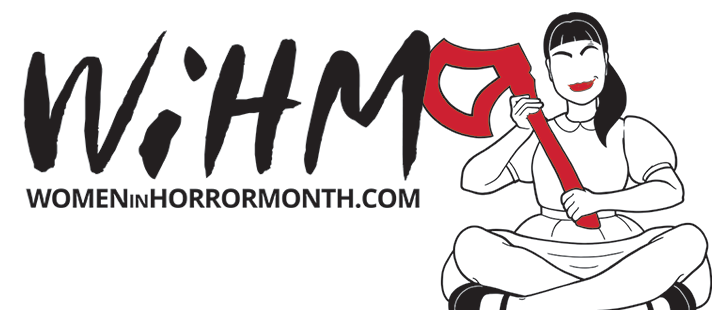BLOG
The importance of Women in Horror Month #WiHM FILM EDITION
It’s the tenth year of celebrating Women in Horror Month! But why does this month matter?
Let’s start with some women in film. I’ll do another post later this month about women in horror literature.
Here are the facts. Of the top 250 movies in 2017, a 2017 report from San Diego State University says that 88% had no women directors. The Atlantic reported in a 2018 article that 83% of the top 250 films had no female writers and 96% had no female cinemantographers. A study conducted by the Center of Study of Women in Television and Film states only 24% of the top 100 movies in 2017 had a sole female protagonist with only 34% having a speaking role.
Why should you care about this and what does it have to do with horror?
An article from
says it best:
Each year, the Geena Davis Institute on Gender and Media publishes research that shows how gender imbalances in film affects women and girls.
For example, they’ve found that positive and prominent roles for women in movies “motivate women to be more ambitious” professionally and personally. But when there is a dearth of women being depicted in positive ways, it has an opposite, negative effect.
A recent study by Google and the Geena Davis Institute studied this phenomenon across genres. They developed something called “the GD-IQ” (Geena Davis Inclusion Quotient), which is facilitated by machine-learning technology. The goal was to recognize patterns in gender, screen time and speaking time that the casual movie viewer might overlook. The results of this study told a familiar story: In film, men are seen and heard twice as often as women.
This means that an entire group of human beings is being marginalized within a booming industry, creating a ripple effect within our society.
But let’s talk horror specifically. So often, horror depicts women as dimwits who scream more than they talk and often die first. Even in the most iconic of films, such as Halloween (1978) or Friday the 13th (1980), we see the gross stereotype perpetuated to make money from the mega horror industry. They are usually virgins who end up having sex, only to be hunted and killed because of it. Think of Cabin Fever (2002) or Sorority Row (2009) where those who have sex die first. Or it’s the opposite. The virgin girl is the only one to survive due to her purity, such as in Halloween. Even in the cult classic Carrie (1976), sex plays a pivotal role as the movie starts when she begins menstruating and her purity is called into question.
It seems women can’t win within the horror genre. We’re a tired, stereotypical, disgusting troupe.
And that’s why we need more women.
More women protagonists. More women directors, produces, writers, and cinematographers.
We need a new perspective.
And I think it’s becoming clear to Hollywood that women are done being the screaming sex-driven eye candy in films. We’re not settling for the same old misogynistic approach in our horror films. Here’s a look at some incredible women in horror for you to check out this month:
Julia Ducournau
Ducournau is the French writer and director of Raw (2016), a haunting and beautiful horror movie about a a teenager with an appetite for human flesh. The film won the FIPRESCI (Fédération Internationale de la Presse Cinématographiqu) prize at the 2016 Cannes Film Festival
Sophia Takal
Takal is an actor and director whose film Always Shine (2016) highlights envy and destruction between two friends.
Mary Harron
Harron directed and co-wrote American Psycho (2000) with Guinevere Turner. Need I say more? Okay, I’ll say a little more. She also created a teenage Gothic horror, The Moth Diaries (2011) and created a horror film with Turner based on Charles Manson, which will hopefully be released later this year.
Ana Lily Amirpour
I’ve heard Amirpour’s first debut film A Girl Walks Home Alone At Night (2014) notes as an Iranian Western vampire movie. She’s a UK director and also is credited with The Bad Batch (2016) , a cannible dystopian film.
Jennifer Kent
Kent is an actress and director who directed The Babadook (2014), which is a personal favorite of mine. A mother and son must battle a mysterious force intent to kill them.





